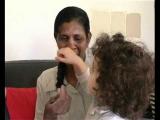You are here
Migrant Women Domestic Workers to set up a Union to protect their rights
As Safir newspaper published a report on a number of migrant women domestic workers who are working with the support of the National Federation of Trade Unions of Workers and Employees in Lebanon to set up their own Union so as to represent MWDW and to protect their interests. The report highlights a number of testimonials from human rights and worker rights activists who provide details about the plight of MWDW as well as their relations with organizations that support their rights, with their respective churches and embassies.
It is to be noted that the number of MWDW in Lebanon is estimated anywhere between 150 and 200,000workers out of a total workforce of 1.45 million people according to ILO. This category of workers remains excluded from the provisions of the labor law according to its 7th clause, while the Ministry of Labor requires MWDW to obtain work permits. As such, MWDW do not enjoy benefits such as minimum wage, maximum working hours and paid leave and are forbidden from their right to engage in trade union work.
The report notes that despite all the efforts extended by the General Security, relevant embassies, international and local organizations as well as churches, MWDW remain unable to defend their own rights and interests. However, a number of MWDW such as Susanna from Nepal have set up a women group known as NARI (Group of Nepalese Feminists in Lebanon) with the support of Kafa. Libbie from Bangladesh in order to come with solutions to the similar problems they face and have come to realize that a union would serve their interests best.
The president of the National Federation of Trade Unions of Workers and Employees in Lebanon, Castro Abdullah, indicated that the idea to mainstream the concerns of migrant workers through encouraging them to organize and represent themselves, started during the mobilization for the review of the salary scales. He indicated that there is no difference between one worker and the other. He emphasized the importance for MWDW to organise and demand legal protection, through networking with unions in their own countries and lobbying their respective governments to conclude bilateral agreement which will regulate the norms and standards of employments and the work of employment agencies.
Abdullah noted that the new trade union will be open to Lebanese and non-Lebanon workers as experience has shown that there is indeed a category of vulnerable Lebanese workers who needs to be included in that category. He confirmed that Lebanese law allows non-Lebanese to become union members on condition that they do not vote or get elected in governance bodies
The newspaper report also pointed out to the findings of a ILO study conducted in 2012 which revealed that there are some 18 NGOs in Lebanon who are active in working with MWDW focusing on different areas and within adopting a mainly service provision/welfare approach. These organisations are involved in the provision of temporary shelters, medical and legal aid to victims of violence. Four of these organisations are more engaged in advocacy focusing mainly on violence but not addressing issues related to abuses in employment practices. According to the aforementioned ILO study, capacity building provided by some NGOs does not address support the capacity to organize and work collectively.
Rahel, a migrant woman from Ethiopia, emphasized the importance of communication amongst MWDW across nationalities especially since churches and embassies only allow communication amongst migrant from the same nationality for fear of losing control.
Source: Al-Safir, Al-Safir 2 August 2013
- 6 reads
- العربية




